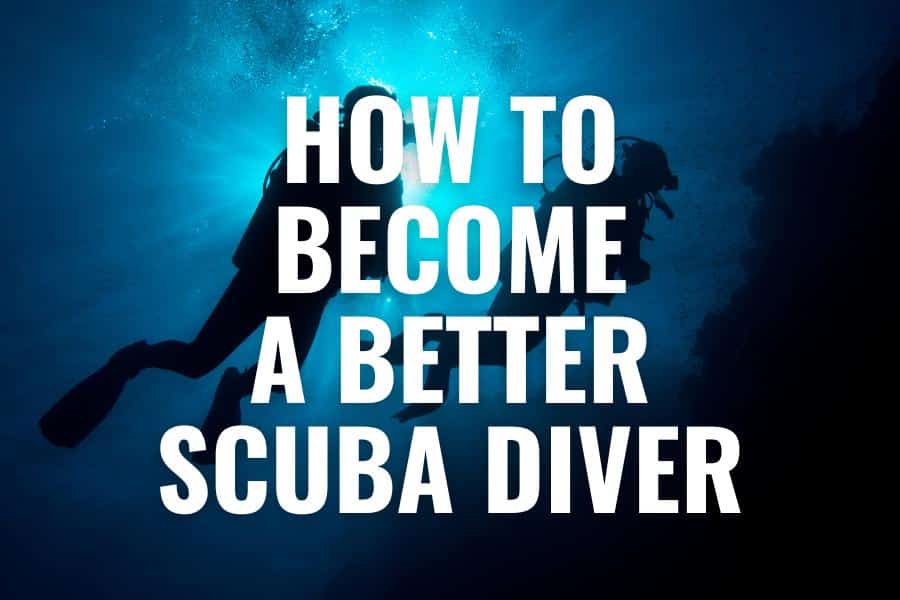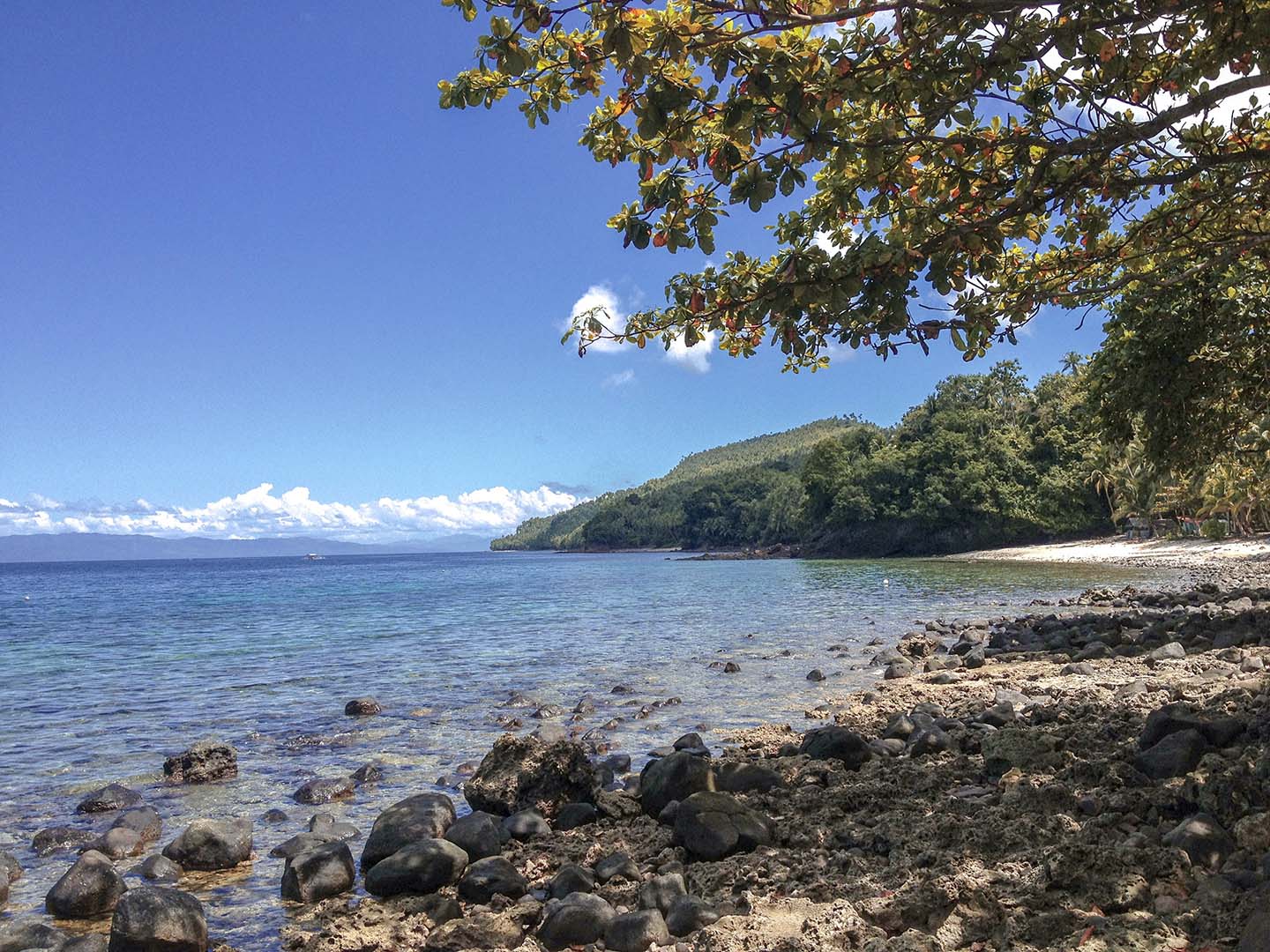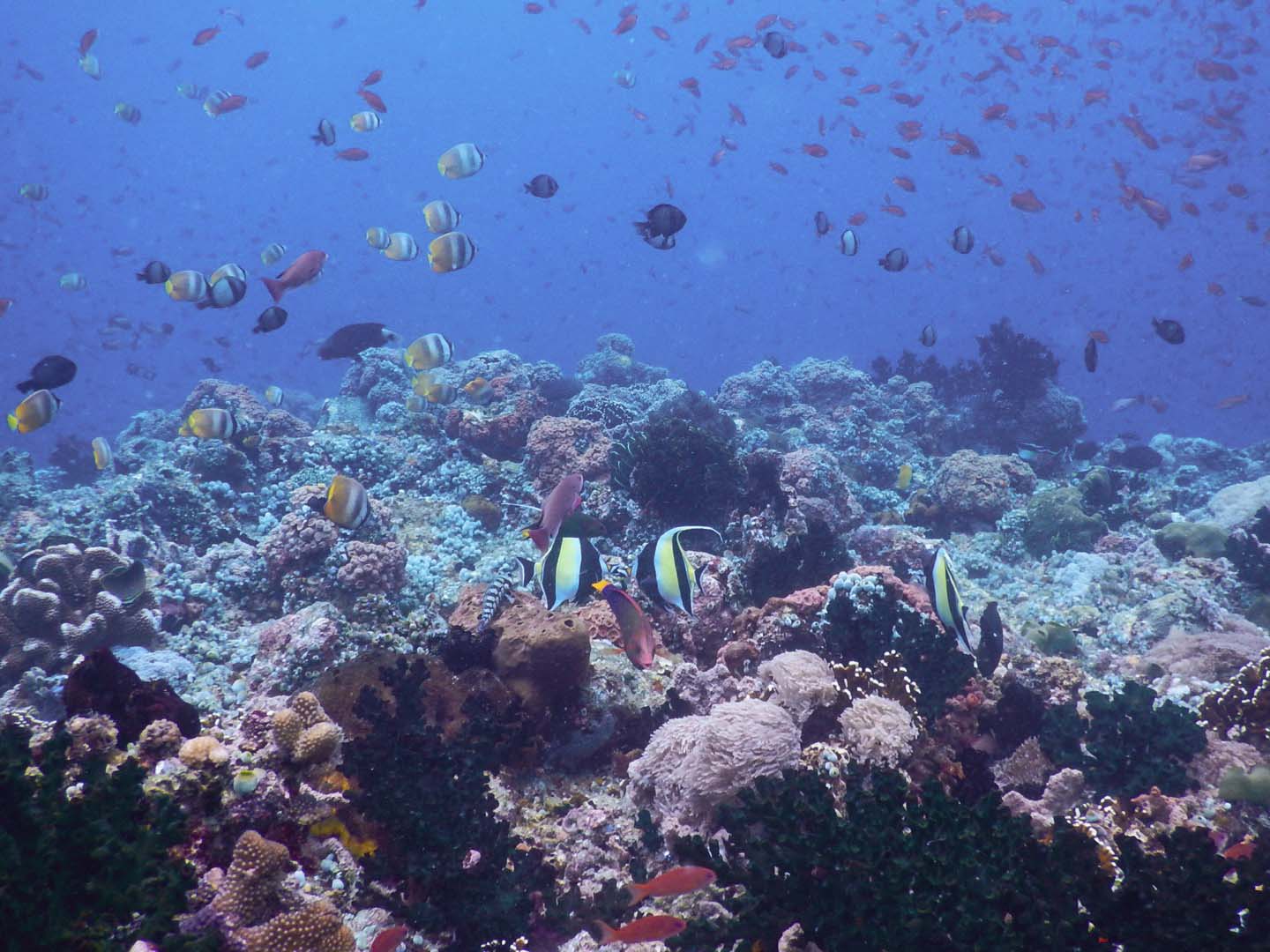I’ve been a scuba diving for more than ten years now and I can say I know a thing or two or maybe even 12 ways, on how to become a better scuba diver. Like any journey, the path to becoming a skilled diver is paved with diligence, curiosity, and the thrill of discovery.
Becoming a proficient diver isn’t something that happens overnight. It’s a process that requires commitment, patience, a dash of adventure, and quite frankly, a lot of money!
When I started diving it was never a goal to become the best scuba diver. Because how do you even measure that, right? But I did want to become a better one.
For me each dive was an opportunity to practice, to learn, and to improve myself. Yes, I dive for leisure, but it I also do it to challenge myself.
On this blog, I’ll share the wisdom I’ve gained from my years under the sea, providing actionable tips to elevate your scuba diving skills and experiences.
1. Hone your basic skills
Upon completing your open water course, you often feel a surge of confidence. This newfound assurance may lead you to believe that you’ve mastered all there is to know about diving. However, the truth is that earning your Open Water certification is merely scratching the surface of scuba diving’s vast expanse.
Fine-tuning your existing skills means that now that you’ve got a good grasp of your foundational skills, you’ve got the basics down; it’s time to elevate them.
Consider, for instance, your buoyancy control. It extends beyond simply maintaining a neutral position. It involves making subtle adjustments that allow you to glide seamlessly through the water.
Likewise, your understanding and use of diving equipment require a heightened focus. The more you dive, the more intimate you become with your gear. It’s not just about how to use your regulator or BCD, but knowing how to handle equipment glitches under water — it becomes second nature.
Improving you air consumption and working on your breath work can be a game changer. It determines your depth, your buoyancy, and even how long you get to enjoy the dive. Learning to use your breath efficiently can help conserve your air supply, letting you stay under longer. Isn’t that what we all want? More time with the fish and the corals!
Scuba diving is all about enjoying the underwater environment, but you need to do so without disturbing it. This means being aware of your surroundings to avoid harming marine life or damaging the coral. Ask yourself, how conscious are you when it comes to these things while you are diving?
As you spend more time underwater, these skills will start becoming second nature. Yes, these things you can learn with practice but also be intentional with it. Are you able to set up your own gear without any assistance? Can you deploy an dSMB on your own? Has your air consumption improved over time? As a new diver, at least get the basics right, and if you can’t, seek guidance from experienced divers.
2. Take Additional Courses
Consider your Open Water certification as your initial step into the intricate world of underwater exploration. It equips you with fundamental knowledge and skills necessary for safe and enjoyable diving. Yet, the realities of diving extend far beyond these basics. There are diverse specializations to explore, from deep diving and wreck diving to underwater photography and marine life identification.
Specialized courses are your tickets to unlocking new levels in diving.
Taking my rescue diving course and getting nitrox certified opened up a whole new layer of understanding and enjoyment of the sport. Knowing how to handle emergencies added a layer of safety to my adventures, while nitrox extend my bottom time as I interacted with the critters in certain depths.
Some courses may focus on improving your buoyancy control, underwater photography skills, or even courses that focus on marine conservation. The possibilities are endless and each course will bring something new to your diving experience. So don’t be afraid to invest in yourself and take additional scuba courses – the rewards are worth it.
3. Dive with Different People
When you start diving, you’ll want to stick with the familiar and comfortable. Venturing out on your own is really scary, so there’s nothing wrong with diving with people you already know.
Maybe you’re part of a dive club and dive with the same people every weekend, which is great! Maybe you have one dedicated dive buddy which is great too. But sometimes, sticking with the same people can hold you back as well.
What if your dive buddy or group may not have the same schedule as you or may not always share your diving interests? Will you just continue waiting? Well, you shouldn’t!
Scuba diving brings together people from across the globe, each with unique stories and skills to share. On my own dives, I’ve been enriched by the diversity of companions I’ve met – someone always knows something you don’t. By opening yourself up to new friendships, you access techniques and wisdom that books and videos simply cannot replicate.
So don’t be scared to expand your social circle. Meet new divers, explore different cultures and learn from others. You never know what valuable lessons and lifelong friendships await you.
4. Learn from Different Instructors
As tempting as it might be to stick with the same instructors, diversifying and adding to your roster of mentors will benefit you tremendously. When you’re done with your dive course, it’s very tempting to just stick with your same person who’s guided and helped you complete it. You already know them, you’re vibing with them, you’re happy with how it turned out, so why change?
Each instructor comes with a distinct approach to diving, each with valuable lessons that can shape you into a more versatile diver. Sometimes you’ll even discover that what you thought was good was apparently not that good enough!
So do consider looking for other options for your future courses. Think of it like you’re openly dating. You don’t have to commit to the same person for all your certifications. You can look around and who knows you might find that there are better out there for you.
5. Dive in Different Environments
Comfort zones are cozy, but your growth as a scuba diver happens in the wild. Diving across various conditions teaches you to adapt – a crucial quality for a diver.
Factors like temperature, visibility, and wildlife vary greatly with location, and exposing yourself to a broad spectrum of conditions will sharpen your abilities as a diver.
I always find it humbling when, even after 300 dives, if you put me in a new environment, it feels like I’m a beginner once again. I remember the first time I dove in a lake, how much I struggled with my buoyancy or how when I had to wear a 5mm wetsuit diving in cold water really tested my diving skills.
So don’t limit yourself to just one type of diving – try different underwater conditions, situations, environments. This will make you a better scuba diver.
6. Work on Your Social Skills
In scuba diving, like in many other activities, interpersonal relationships play a significant role. Enhancing your people skills is crucial because you don’t want to become the diver that no one wants to dive with.
There’s nothing quite like the bond that forms between divers. When you’re underwater, communication becomes a matter of life and death. You learn to pay attention to non-verbal cues, to anticipate your fellow divers’ needs, and to express your own clearly and succinctly.
But it’s more than that. On land, you’ll be sharing meals, travel experiences, and those unforgettable “remember when” stories that only divers can truly appreciate. You’ll need to navigate different personalities, cultures, and languages.
When you treat people poorly or behave inappropriately towards other divers, it doesn’t just tarnish your reputation in the diving community—it can also hinder your growth as a diver. Scuba diving is inherently a team activity, requiring clear communication, trust, and cooperation between dive partners. Poor behavior, above and under water, can make others feel unsafe and can lead to your isolation within the community.
Therefore, cultivating good relationships with fellow divers—through respect, good etiquette, and positive interactions—is as important as honing your technical diving skills.
7. Volunteer for Marine Conservation
As scuba divers, we have a unique perspective on the state of our oceans. We witness firsthand the damage caused by pollution and human impact. But instead of feeling helpless, we can use our passion for diving to make a difference.
My volunteer work with marine conservation groups like Coral Cay Conservation or Marine Conservation Philippines, made me a better diver because it made me care for something bigger than myself. I worked on my my buoyancy and improved my finning techniques because I knew that if I didn’t, I could potentially harm marine creature and damage the environment while diving.
So next time you plan a dive trip, consider volunteering for a marine conservation organization. Join a beach clean up or participate in an underwater cleanup dive. Every small act makes a big impact but you’ll also gain valuable knowledge and skills that will help you become a better diver.
Dive with a purpose and leave the ocean better than how you found it.
8. Set Goals and Challenge Yourself
Goal-setting is a formidable motivator. Every time I flagged a new destination on my map or aimed to master a technical skill like underwater photography, it re-energized my enthusiasm for diving. It’s easy to plateau if you’re not actively pushing your limits.
Set a scuba diving resolution each year – maybe it’s to encounter the elusive manta ray or delve into the history-steeped confines of a World War wreck. Perhaps you want to reach 100 dives and celebrate other milestones. Maybe even pursue a career in diving.
Achieving these goals will not only satiate your thirst for adventure but also build up your diving repertoire.
9. Practice, Then Practice Some More
When it comes to diving, practice is non-negotiable. The more time I’ve spent underwater, the more second nature my responses have become. Diligent repetition of skills like mask clearing or buoyancy control during each dive, even if they’re already mastered, maintains your proficiency and readiness.
Use pool sessions to refine your skills in a controlled environment. Muscle memory is a diver’s silent ally, and the only way to develop it is through persistent practice.
I always say, if you think you’re already good enough. You should probably think again.
10. Stay Humble and Keep Learning
If there’s one thing the ocean teaches us, it’s humility. Despite countless dives across seas, I’ve never forgotten that there’s always more to learn. Acknowledging that your knowledge and skills is never complete is the hallmark of a truly great diver.
Read books, watch documentaries, attend seminars, and above all, listen to those that come before you. The wisdom and experiences shared are invaluable.
Keep an open mind regardless of how many dives you’ve had. Even a scuba diver with 30 years of diving experience and thousands of dives will still have much to learn from their peers.
11. Invest in Proper Gear and Maintain It
The right gear can make or break your dive. Investing in reliable equipment suited to your style can significantly improve your comfort and safety underwater. And don’t just buy it—know it like the back of your hand. Understand how every piece functions and perform regular maintenance.
I remember when I started diving I rented a lot, which meant having to constantly adjust to the rental gear I was using. While this helped my skills exposing myself to different gear, it was also frustrating having to familiarize myself with new equipment each time. Equally frustrating was when I had to use gear that just didn’t feel right on my body.
Getting my own dive kit helped me become a better diver because I felt safe and comfortable each time I jumped in the water. I knew my equipment and what I needed to do with it if something happened.
Familiarity, comfort and fit will tremendously help your confidence while diving.
12. Join a Community
Being part of a diving community is perhaps one of the most enriching experiences. I’ve found mentors, friends, and a support system within these networks. They are a wealth of knowledge, offering advice, sharing experiences, and sometimes even planning trips together.
I particularly enjoy the online community I’ve built on Instagram and Facebook. Even when I am not underwater, the insights I gain from them is invaluable. I’m always learning something new from people who follow me and divers I also follow from all over the world.
So, look for local diving clubs, online forums, or social media groups. Being involved in the diving community keeps your passion alive and constantly rekindles the flame for your next underwater adventure.
And there you have it, my tried-and-true guide for becoming a better diver! Remember, the journey doesn’t stop here. Keep nurturing your love for the deep blue, never stop exploring, and always continue seeking out new experiences and knowledge. So, gear up, dive in, and most importantly, never forget to have fun!


